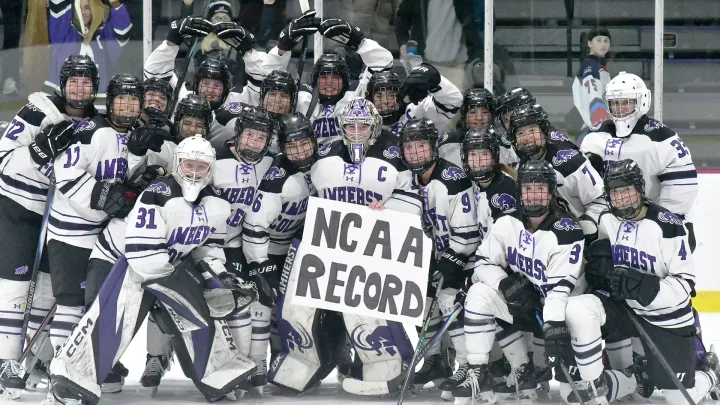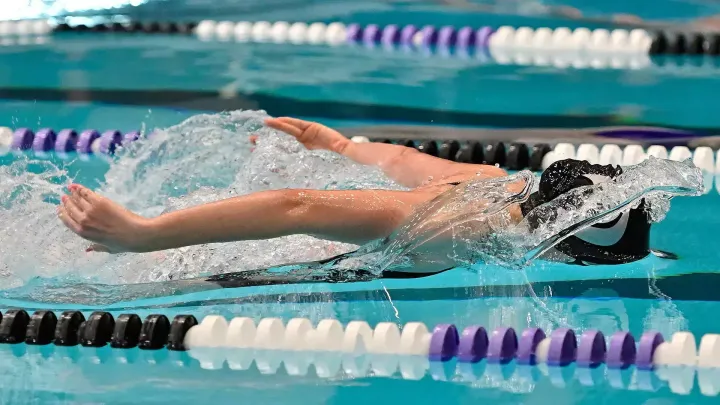Marcell Ozuna and the Character Floor
Marcell Ozuna is, by many metrics, a very good baseball player. However, he falls down dramatically on one key front — his humanity.
Trigger Warning: Domestic Violence
When Marcell Ozuna bats, he’s hard to miss. He almost always wears a neon yellow compression sleeve, an accessory so bright, it shines. This season, as the best hitter on a pretty good Braves team, Ozuna is shining, too. The league average hitter has an On-base Plus Slugging Plus (OPS+) of around 100; Ozuna’s is 158. In other words, this year, he’s produced about 58% more runs than the average hitter. The conventional stats are immaculate, too. As of Sept. 14, through 147 games, he’s hitting .309 with 37 home runs and 98 Runs Batted In (RBIs). That’s sixth in the league for batting average, fifth in the league for home runs, and 10th in the league for RBIs.
The thing is, Ozuna has virtually no chance of winning the National League (NL) MVP this year, with Fox Sports listing his odds at +10,000, meaning a successful $100 bet on Ozuna nabs you a $9900 profit. Additionally, Ozuna’s jersey doesn’t rank among the top 10, let alone the top 20 highest-selling jerseys in baseball. So, why is this?
***
As said, Ozuna has, quite frankly, no chance of winning NL MVP. For one, he’s a DH, or designated hitter. DHs don’t field, meaning their value is limited. While not as flashy, fielding in baseball is awfully important. In mainstream baseball discourse, people often overlook fielding, perhaps because, for a while, they had no idea how to measure it. Before the introduction of Defensive Runs Saved (DRS), Outs Above Average (OAA), and Ultimate Zone Rating (UZR), sportswriters and player voters just kind of guessed who the best fielders were, and they often guessed wrong. The league introduced the Gold Glove Award for the best fielders in 1957, and DRS was introduced in 2003. The time between these dates is what I’ll dub “the guessing period.”
Some amusing winners during this stretch include Rafael Palmero, who won the American League (AL) Gold Glove at first base in 1999. Palmero played first in only 28 out of 156 games he appeared in. In all other instances, he played DH. So, how’d he win? Well, it’s quite bizarre: while he won the award in ’97 and ’98, in those years, he actually played first base. In ’99, Palmero switched to DH. By the season’s end, the voters hadn’t noticed and still gave him the award anyway. This shows that, with few legitimate points of reference, voters often gave the award out haphazardly and sometimes even incorrectly.
For instance, Derek Jeter was not a good fielder. He was a flashy fielder, but not a good one. Over his 20-year career, Derek Jeter racked up -165 DRS, the worst career total of any shortstop ever. Still, while routinely putting up -10 to -20 DRS seasons, he continued to win Gold Gloves. Even in 2005, his worst defensive season ever, a campaign where he racked up -27 DRS, he still won the Gold Glove award. Needless to say, years of poorly tracked fielding not only degraded the importance of the skill to the public but also confused those who were supposedly “in the know.”
Today is different, though; with the rise of stats like WAR (Wins Above Replacement), an overall value metric that heavily weighs defensive value, voters know who can and can’t play defense and who is truly valuable. Players who don’t participate in the field, like Ozuna, have a lower WAR and lesser value. However, the whole thing kinda falls apart when you realize the frontrunner for the NL MVP, Shohei Ohtani, is also playing DH this year, just a bit better than Ozuna. This is particularly incredible, considering no DH has ever won the MVP, but that’s an article for another day.
Now, why doesn’t Ozuna rank among the league’s highest-selling jerseys? Because he doesn’t field? Well, probably not, as Ohtani tops the ranking; it must be noted, however, that while Ohtani has played strictly DH this season — he is usually a two-way player — both hitting and pitching. Maybe it’s his market, then? Unlikely, his Atlanta teammates, Matt Olsen and Ronald Acuna Jr., are both on the list. In truth, a third thing about Ozuna grabs attention — his criminal history.
***
On May 29, 2021, police saw Ozuna snatch his wife by the neck and throw her against a wall. At the same time, he attacked her with his previously injured, casted arm.
The scene was brutal.
In the aftermath, a court ordered Ozuna to complete 200 hours of community service. In addition, the league suspended him for 20 games — a slap on the wrist compared to former Dodgers pitcher Trevor Bauer, who served a 194-game suspension for alleged domestic violence issues in 2021.
Still, there’s more. On Aug. 19, 2022, after serving his suspension, Ozuna was charged with driving under the influence. When confronted by police, Ozuna simply stated:
“I’m Ozuna from the Braves.”
Alas, instead of taking the breathalyzer, Ozuna opted for handcuffs. Fortunately for him, he avoided suspension. In court, however, he pleaded no contest and paid a $1000 fine.
On Aug. 21, 2022, just two days after his arrest. Ozuna took the field in Atlanta. He wore no yellow sleeve, just a red one, and there were no cheers, only boos.
***
Whatever star power Ozuna once had, by this point, has waned. In the best season of his career, his reputation has improved, but at the same time, he’s languishing — a bug on a dead thing — his presence guaranteed but still so gnarly. So, why is he here? I don’t know. I do know, however, that the Hall of Fame has a character clause. A voter must consider “a player’s record, playing ability, integrity, sportsmanship, character, and contributions to the team(s) on which the player played.” Should the Hall of Fame have a higher character floor than the MLB? I don’t know. The MLB doesn’t have a character clause, the Hall of Fame does, and still, there are morally corrupt MLB players and even morally corrupt Hall of Famers. Take Cap Anson, who refused to manage a game with Black ballplayers in the 19th century, or Commissioner Bud Selig, who turned a blind eye to rapid steroid use in the 1990s, or even Joe DiMaggio, who abused his wife, Marilyn Monroe, on multiple occasions. So, really, what role does morality play in any of this discourse? What role does it truly play in sports? Should the best player on the field get moral amnesty? Has Ozuna served his time for his faults? How egregious does a crime have to be to pull the plug? None of this really has to do with baseball, the Hall of Fame, or even Ozuna; it really pertains to our icons — the people we put on a pedestal — and the moral standard we choose to hold them to. I don’t have the answers to these questions, so I ask you: What’s your limit?




Comments ()